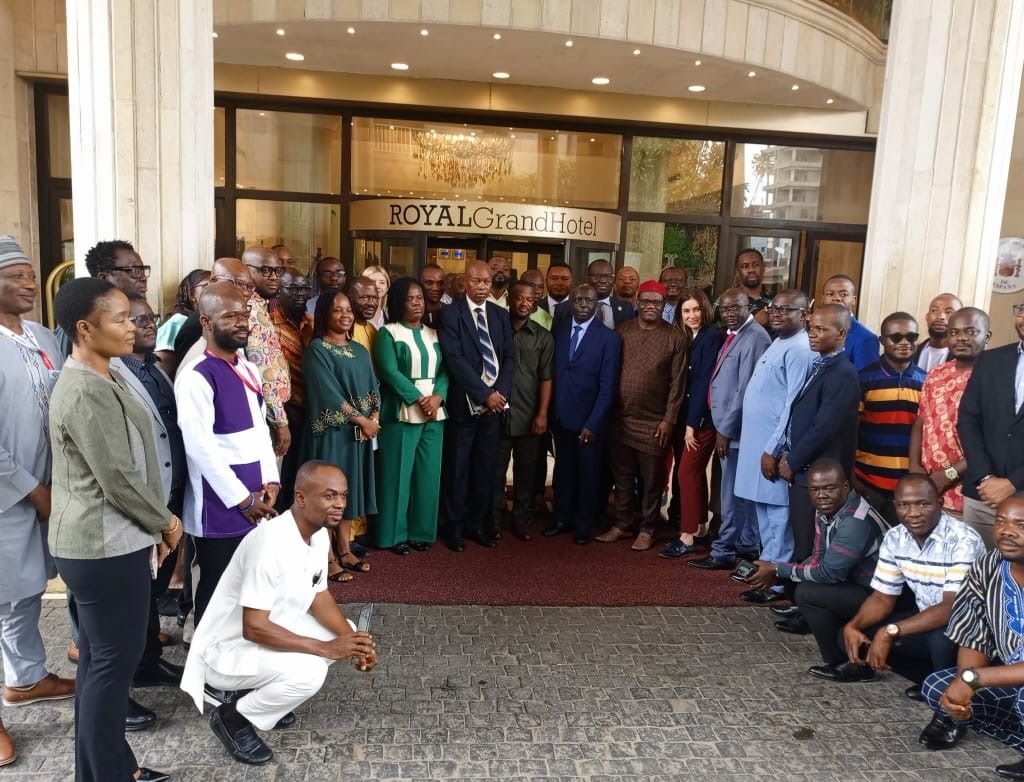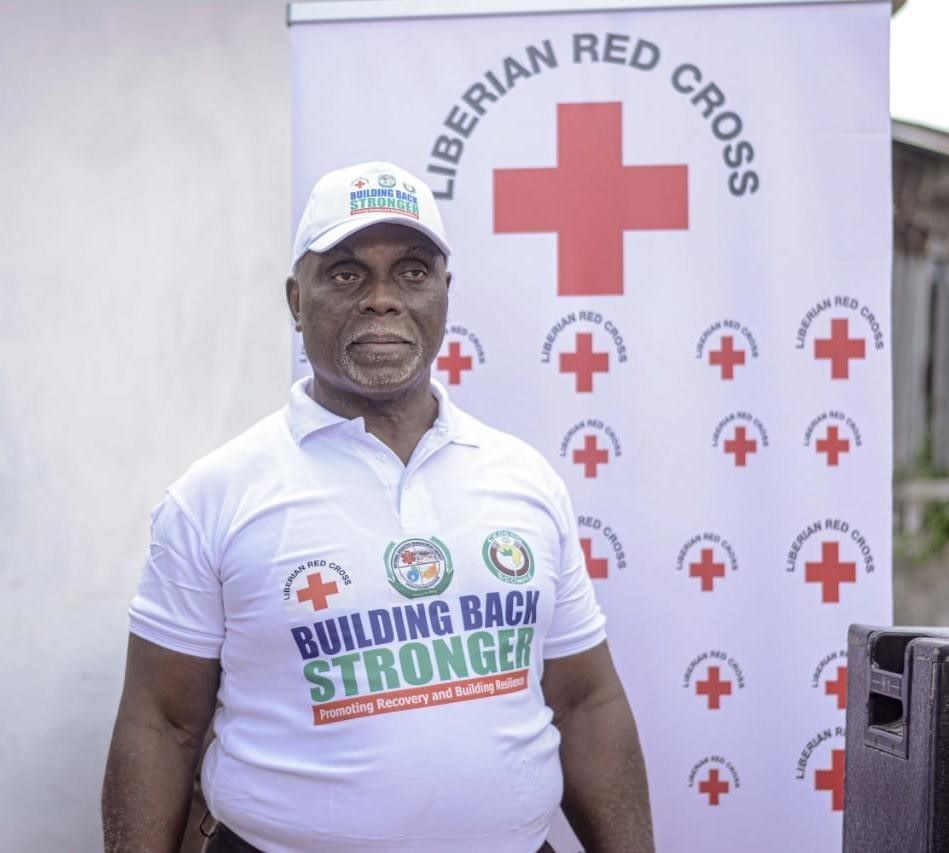PHOTO: LNRCS Secretary General, Gregory Blamoh
The Liberian Red Cross has warmly welcomed the recent government’s action on the official launch of the Early Warning for All (EW4ALL) Initiative, a groundbreaking effort in the West African region. Aligned with global efforts, this initiative aims to protect everyone from hydrological and meteorological disaster risks by 2027, marking a significant milestone in Liberia’s disaster preparedness and response efforts.
With climate change causing increasingly extreme weather, such systems are vital for saving lives, reducing economic losses, and offering a high return on investment. While early warning systems have proven effective in decreasing fatalities and mitigating damage from natural disasters, significant gaps remain, particularly in least-developed countries.
UN Secretary-General António Guterres called for a global effort in 2022 to close these gaps as part of his Acceleration Agenda, making early warning systems a critical component of climate justice for those most vulnerable to climate change.

Guests pose for photo at the launch ceremony in Monrovia
In a statement, the Liberia National Red Cross Secretary-General Gregory T. Blamoh described the move by the Liberian government and its international partners as a crucial step in the right direction. “This initiative is not just a milestone; it is a lifeline for our communities,” Mr. Blamoh added. Liberia is currently experiencing extraordinary multi-hazards, including floods, coastal erosion, and violent storms, among others. The Liberian Red Cross has been one of the lead responders, addressing the aftermath of these disasters and providing crucial support to affected individuals.
The Red Cross Secretary-General emphasized the initiative’s potential to save lives and mitigate the loss of property during disasters. “The increasing frequency and severity of these disasters have had devastating impacts on our communities and vulnerable populations,” said Blamoh. “The Early Warnings Initiative is vital for enhancing our preparedness and response capabilities.”
As Mr. Blamoh rightly put it, “This initiative is our collective commitment to safeguarding our communities, ensuring that no one is left behind in the face of disasters. We are grateful for the support of all our partners and look forward to the successful implementation of this critical initiative.”
The Early Warnings for All initiative is co-led by the World Meteorological Organization (WMO) and the United Nations Office for Disaster Risk Reduction (UNDRR), with support from the International Telecommunication Union (ITU), the International Federation of Red Cross and Red Crescent Societies (IFRC), and other partners.
The initiative also engages development partners through existing partnerships and coalitions such as the Alliance for Hydromet Development, the Risk-informed Early Action Partnership, and other regional partnerships and alliances. National organizations such as the National Disaster Management Agency (NDMA), the Ministry of Transport, the Liberia Telecommunications Authority (LTA), and the Ministry of Mines and Energy are key partners in this endeavor.
The Early Warnings for All initiative is a collaborative effort involving the government, international, and national partners. It focuses on four key pillars: risk knowledge and observations, forecasting and warning issuance, dissemination and communication, and preparedness and response. The Liberian Red Cross is a key implementer of Pillar Four, focusing on preparedness and response.
The Liberian Red Cross remains committed to working alongside its partners to build a more resilient future for all Liberians. “The development of the Early Warnings for All roadmap will help formalize and enhance our ongoing efforts in disaster preparedness and response,” Blamoh continued. “By putting in place community structures and providing comprehensive training, we aim to empower local communities to act swiftly and effectively in the face of disasters.”
The initiative aligns with the Paris Agreement and supports the Sendai Framework for Disaster Risk Reduction, especially Target G, which focuses on multi-hazard early warning systems. It also contributes to the 2030 Agenda for Sustainable Development by addressing goals related to poverty, hunger, health, clean energy, climate action, and sustainable cities. Ensuring the effectiveness of early warning systems for everyone is essential for global resilience and sustainability.

